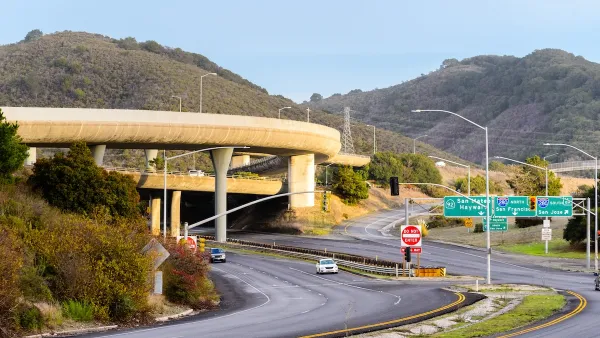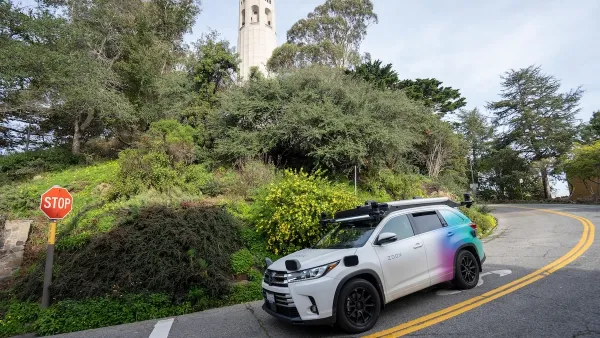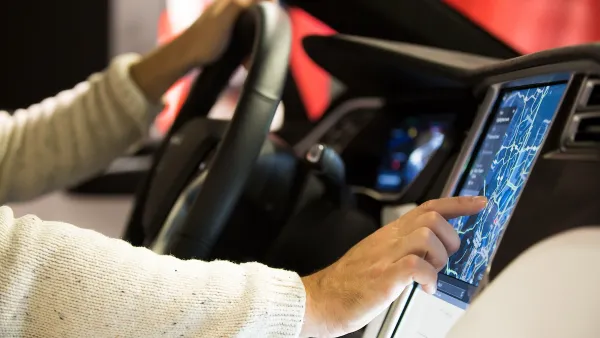In hyper-dense cities where incentives to reduce car use and eliminate parking are already high, mass adoption of AVs won’t significantly reduce parking demand.

Although supporters of autonomous vehicle technology tout the potential for AVs to revolutionize curb management and eliminate the need for parking lots and garages, a new study, somewhat ironically funded by AV operator Venmo, reveals that this will likely not be the case in cities with already limited parking. Kea Wilson describes the results in Streetsblog.
The study took a different approach than most theoretical models. “Rather than assuming that AVs would be a parking-reduction panacea, though, the researchers modeled a range of scenarios wherein the demand for car storage dropped by as little as 20 or as much as 80 percent — and asked tough questions about whether the specific parcels that drop in demand would free up would actually be redeveloped into an apartment building, based on existing market incentives, lot size, and other factors.” According to Nico Larco, director of the Urbanism Next Center at the University of Oregon, the study indicates that “parking is not what is limiting development” in already dense and pricy neighborhoods of San Francisco.
Larco points out that most of the need for parking in a city like San Francisco comes from outside the city itself: “it’s people coming from the periphery into the center who are the ones parking their cars. If you don’t have massive geographic penetration, the amount of reduction you’re going to see is going to be a lot smaller…and unless you can get your business model to work in the downtown core and in the suburbs, you’re not going to have that scale of deployment you need to put a real dent in parking.” The mass adoption of AVs could have a more significant impact on parking demand in expensive but car-oriented cities like Los Angeles.
Larco questions the value of pouring billions of dollars and resources into AVs in lieu of investing in less glamorous, tried-and-true transportation options: “Would a bike lane, or some other, more mundane mobility [improvement], maybe have made more sense?”
FULL STORY: The AV Revolution Probably Won’t Revolutionize Parking in Dense Cities

Analysis: Cybertruck Fatality Rate Far Exceeds That of Ford Pinto
The Tesla Cybertruck was recalled seven times last year.

National Parks Layoffs Will Cause Communities to Lose Billions
Thousands of essential park workers were laid off this week, just before the busy spring break season.

Retro-silient?: America’s First “Eco-burb,” The Woodlands Turns 50
A master-planned community north of Houston offers lessons on green infrastructure and resilient design, but falls short of its founder’s lofty affordability and walkability goals.

Test News Post 1
This is a summary

Analysis: Cybertruck Fatality Rate Far Exceeds That of Ford Pinto
The Tesla Cybertruck was recalled seven times last year.

Test News Headline 46
Test for the image on the front page.
Urban Design for Planners 1: Software Tools
This six-course series explores essential urban design concepts using open source software and equips planners with the tools they need to participate fully in the urban design process.
Planning for Universal Design
Learn the tools for implementing Universal Design in planning regulations.
EMC Planning Group, Inc.
Planetizen
Planetizen
Mpact (formerly Rail~Volution)
Great Falls Development Authority, Inc.
HUDs Office of Policy Development and Research
NYU Wagner Graduate School of Public Service




























